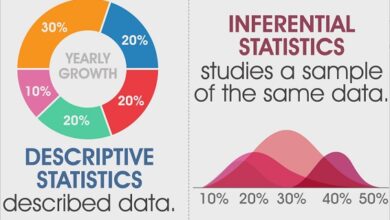Socio emotional questionnaire/Advantages/Questions
Socio emotional questionnaire
Early identification of social-emotional problems can make a difference in a person, from a young child to an adult. The earlier a behavior problem is identified, the more likely a person is to reach their full potential in life. To achieve this, specialists resort to a socio-emotional questionnaire to inquire about various aspects.
Remember that today we are exposed to risk factors such as poverty or toxic stress, the probability of depression, anxiety and antisocial behavior increases. During the first years of a child’s life there is a great opportunity to identify and address possible social-emotional problems.
Let’s learn more about some characteristics of this questionnaire and how to implement it.
What is a socio-emotional questionnaire?
A socio-emotional questionnaire is one that contains questions that seek to detect the typical ups and downs of emotions and behavior or problems that can easily go unnoticed.
Socio-Emotional Profile Questionnaires are designed to help obtain additional information on the emotional health and well-being of a child or youth, as well as to provide a picture of peer relationships and levels of social acceptance and rejection within a class or group of tutors.
Advantages
These are some of the other benefits of applying a socio-emotional questionnaire:
- They provide information on general functioning in the areas of communication, motor and cognitive.
- They get a quick overview of how children are doing in important areas such as self-regulation, communication, autonomy, compliance, adaptive functioning, affection, and interaction with people.
- With the results of the questionnaire, professionals can quickly recognize social or emotional difficulties, identify behaviors that concern caregivers, and identify any need for further evaluation.
- The school climate influences the academic success of students and their ability to develop social-emotional competencies. Educators and administrators use the information collected to create more positive, equitable, and supportive environments for student learning.
Questions for a socio-emotional questionnaire
The questions for this type of questionnaire vary depending on age or what you want to assess.
Some questions may refer to students’ social and emotional experiences. Depending on the age of the student, they are asked to answer questions that cover a number of topics such as: Positive and negative social experiences at school, negative emotions (for example, feeling sad, worried or scared) at school, perception of himself, anxiety, depressive symptoms and sadness.
These are some of the questions that you can include in your questionnaire, using a scale from 1 to 5, where 1 is I disagree, and 5 is totally agree:
- I can stay calm in stressful situations.
- I always apologize when I accidentally hurt my friend.
- When I make decisions, I take into account the consequences of my actions.
- I stay calm and overcome anxiety in new or changing situations.
- I always try to comfort my friends when they are sad.
- I make sure there are more positive results when I make a decision.
Other questions that you can include in your socio-emotional questionnaire for school students are:
- How often do you worry about violence in your school?
- In your classes, how much do you want to participate?
- How often do your teachers take time to make sure you understand the material?
- How often do you use the ideas from the [TOPIC] class in your daily life?
- How important is it to you that you do well in your classes?
- How much do you care about the feelings of others?
- How often did you praise the accomplishments of others?
- achievements of others?
- How well do you get along with students who are different from you?
This would be an example of an emotional questionnaire related to how students feel taking distance classes.
